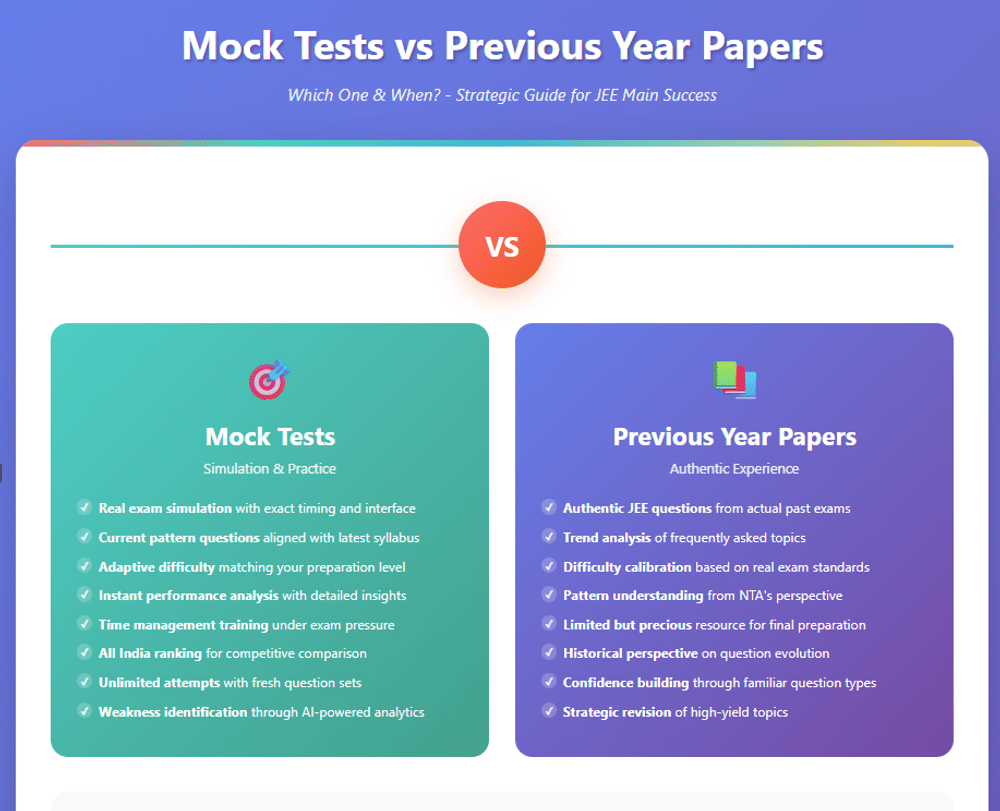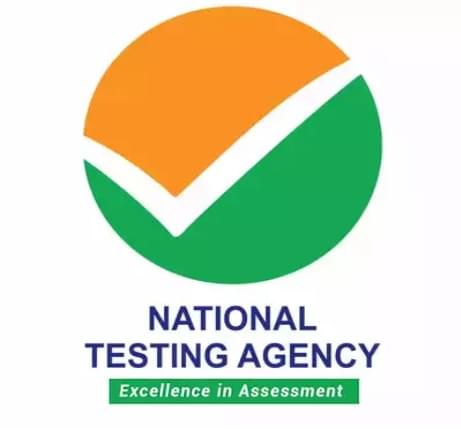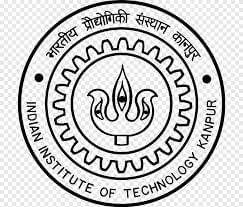JEE Main 2026 Paper
JEE Main Daily Quiz
Quiz
JEE Main Part-Syllabus Mock Test
Mock Test
Physics Chapter Test
Chemistry Chapter Test
Maths Chapter Test
Full Test
Sectional Test
Previous Year Paper

| KdTvCV - Feb 19, 2026
JEE Main is one of the most competitive entrance exams in India. Every year, over 10 lakh students appear for it. To perform well, regular practice is important. One of the best ways to prepare is by taking mock tests.
Mock tests help you understand the exam pattern. They train you to manage time, avoid mistakes, and stay calm under pressure. According to our experts, more than 80% of top scorers attempt over 25–30 mock tests during their JEE Main preparation.
We offer a complete set of JEE Main mock tests. These are designed as per the latest NTA pattern. You can attempt them online or download PDFs with solutions. Our tests are available for all three subjects: Physics, Chemistry, and Mathematics. Our platform provides detailed solutions, instant scorecards, and in-depth analysis. This helps you know where you stand and what to improve.These tests are suitable for all stages of preparation. Whether you're just starting or revising in the last 30 days, we have the right mock test for you.
Table of Contents
- Why Are Mock Tests Important for JEE Main 2026?
- Insights from JEE Toppers Regarding Mock Tests
-
- How to Analyze Your Mock Test Performance
- Strategies to Improve Scores Using Mock Tests
- How Our Platform Simulates Real JEE Exam Conditions
-
- How to Download Free JEE Main Mock Test PDFs
- Daily, Weekly, and Monthly Mock Test Plans
- JEE Main Revision Through Mock Tests- How to Do It Effectively
- How to Use JEE Main Mock Test Results for Final Preparation
- Why You Can’t Skip Mock Tests for JEE 2026
-
Why Are Mock Tests Important for JEE Main 2026?
Mock tests are an IMPORTANT part of JEE Main preparation. They help you get familiar with the actual exam pattern and improve your speed. Regular practice trains your mind to solve questions quickly and accurately. You also learn how to manage time during the exam. Mock tests show you where you are making mistakes. This helps you focus on weak topics and improve them.
According to the National Testing Agency, students who attempt more than 20 mock tests score 15 to 20 percent higher on average. Mock tests also reduce exam fear and build confidence. They make you more comfortable with the exam environment. By tracking your scores over time, you can see how much you are improving. This keeps you motivated and focused. Overall, mock tests play a big role in helping you perform well in JEE Main 2026.
Insights from JEE Toppers Regarding Mock Tests
Here are quotes from JEE toppers who emphasize the crucial role mock tests played in their success:
1. Aman Bansal (AIR 1, JEE Advanced 2016): "Mock tests helped me simulate the actual exam environment and manage time effectively. They were a mirror to my preparation and helped me improve continuously."
2. Bhavik Bansal (AIR 2, JEE Advanced 2019): "I gave regular mock tests to identify my weak areas. They taught me how to handle pressure and refine my exam strategy."
3. Kalpit Veerwal (AIR 1, JEE Main 2017): "Mock tests are not just practice—they are preparation in its purest form. They built my confidence and helped avoid silly mistakes in the real exam."
4. Sarvesh Mehtani (AIR 1, JEE Advanced 2017): "What truly made a difference in my rank was analyzing mock tests properly. Each one showed me exactly where I needed to work harder."
5. Shubham Srivastava (AIR 1, JEE Main 2015): "Consistent mock testing shaped my entire preparation. It made me exam-ready mentally and technically."

Key Features of Our JEE Main Mock Tests
Our JEE Main mock tests are designed to give you a real exam experience. They follow the latest NTA pattern and cover all important topics in Physics, Chemistry, and Mathematics. You get instant feedback and detailed solutions to help you learn from your mistakes.
The platform is easy to use and lets you track your progress over time. It’s important features are:
- Based on the latest NTA exam pattern
- Questions match real exam difficulty
- Covers Physics, Chemistry, and Mathematics
- Instant results after test completion
- Detailed solutions for every question
- Timed tests to improve speed and accuracy
- Unlimited attempts for practice
- Performance tracking and progress reports
- Accessible on mobile, tablet, and desktop
- Option to download PDF mock tests for offline practice
- Created by experienced JEE coaching experts
- Detailed analytics including time spent per question
- Score comparison with other students
- Easy to use platform for all preparation levels
JEE Main Mock Test 2025 Papers PDF
You can also practice JEE Main previous year question papers as mock tests. We have provided below JEE Main question papers PDFs along with the detailed solutions and answer key. Previous year papers are undoubtedly the best sources to practice from before the exam. Download JEE Main mock test 2025 papers pdf with answer key and solutions using the links given below.
| JEE Main Test Paper | Download Question Paper with Solutions PDF |
|---|---|
| JEE Main 2024 Mock Test | Click here |
| JEE Main 2023 Mock Test | Click here |
| JEE Main 2022 Mock Test | Click here |
| JEE Main 2021 Mock Test | Click here |
| JEE Main 2020 Mock Test | Click here |
| JEE Main 2019 Mock Test | Click here |
Practice More JEE Main Previous Year Question Papers with Answers PDF
Benefits of Practicing Regular Mock Tests
Practicing regular mock tests offers numerous benefits for students and exam aspirants. They help in familiarizing with the exam pattern, improving time management, and identifying strengths and weaknesses. Mock tests simulate real exam conditions, reducing anxiety and boosting confidence. Regular practice enhances problem-solving speed and accuracy, allowing students to refine their strategies. By reviewing mistakes, learners can focus on weak areas and avoid repeating errors. Consistent mock testing also tracks progress, helping set realistic goals and stay motivated. Overall, mock tests are a valuable tool for effective exam preparation and achieving better performance in actual tests.
Ideal Time to Start Attempting JEE Mock Tests
Start mock tests 6 to 8 months before the JEE exam. Begin when most of Class 11 and some Class 12 syllabus is done. Early practice builds confidence. It helps with time management. You learn your weak topics. Start with one mock per week. Increase frequency as the exam comes closer.
Ramesh Singh (JEE Advanced Topper) said, "The best time to start mock tests is when you've finished at least 60-70% of the syllabus. For me, that was around 6 months before the exam. Starting then gave me enough time to improve steadily without pressure."
How many mock tests to take before JEE Main?
For JEE Main, taking around 15 to 25 full-length mock tests is ideal. In the early stages of preparation, attempting one mock test per week helps build a strong foundation and identify areas for improvement. As the exam approaches, especially in the last 4 to 6 weeks, increase the frequency to 2 to 3 mocks per week. This enhances time management, accuracy, and builds exam stamina. Each mock test should be followed by thorough analysis to correct mistakes and strengthen weak topics. Consistent mock testing improves confidence and boosts overall performance in the actual JEE Main exam.
Also Read
How to Analyze Your Mock Test Performance
After a mock test, carefully review your answers to identify mistakes—both conceptual and careless ones. Analyze time spent per section, classify questions by difficulty, and note skipped or wrong attempts. Maintain a mistake journal, re-solve the test without time pressure, and set clear goals to improve in the next mock.

| Step | What to Do |
|---|---|
| 1. Review Scores | Note overall and subject-wise scores |
| 2. Identify Mistakes | Find wrong answers and figure out why (conceptual, silly, or guessing) |
| 3. Analyze Time Management | Check how much time you spent on each section or question |
| 4. Classify Questions | Label each as Easy, Medium, or Hard and see what you missed |
| 5. Maintain Mistake Journal | Record every mistake with its cause and correct approach |
| 6. Re-solve the Paper | Solve the test again without time pressure to fix gaps |
| 7. Set Goals for Next Test | Define clear improvement goals based on your analysis |
Strategies to Improve Scores Using Mock Tests
To improve scores using mock tests, simulate real exam conditions and analyze each test thoroughly. Focus on time management, identify weak areas, and maintain an error log. Here are some effective ways to improve scores using mock tests:
| Strategy | How to Apply It Effectively |
|---|---|
| Simulate Real Exam Conditions | Take mock tests at the same time as the actual exam, under timed, distraction-free conditions. |
| Analyze Each Test Thoroughly | Review both correct and incorrect answers to understand concepts and identify patterns. |
| Maintain an Error Log | Create a notebook or spreadsheet of repeated mistakes and topics you struggle with. |
| Practice Time Management | Use a stopwatch or timer to stick to time limits per section/question. |
| Focus on Weak Areas | Use mock results to target specific topics or question types that consistently lower your score. |
| Track Progress Over Time | Compare performance over multiple mocks to measure improvement and adjust study plans. |
| Use Elimination Techniques | Practice intelligent guessing by eliminating wrong options to improve accuracy. |
| Develop a Section-Wise Strategy | Plan the order of attempting sections based on your strengths and test structure. |
| Avoid Cramming Before Mocks | Treat mock tests as check-points, not cramming sessions—simulate real exam readiness. |
| Review Concepts After Every Mock | Immediately revise topics related to the questions you got wrong or guessed. |
| Build Mental Stamina | Gradually increase test duration to match the real exam, improving focus and endurance. |
| Stay Consistent | Take regular mock tests (e.g., weekly), rather than cramming multiple just before the exam. |
Common Mistakes Students Make in Mock Tests
Many students make small mistakes that affect their scores. One common mistake is not treating the mock test like the real exam. Some skip the timer or take breaks in between. Another mistake is not reviewing the wrong answers after the test. Without analysis, it’s hard to improve. Students also guess too many answers without logic, which lowers accuracy. Some focus only on tough questions and waste time. Others panic when they see new or tricky questions. Not managing time properly is another issue. Trying too many mock tests without learning from them is also a common error. To get the most out of mock tests, take them seriously, review every test, and stay calm under pressure.
| Common Mistake | Tips to Avoid |
|---|---|
| Not Treating Mock Tests Seriously | Create a real test environment with time limits and no distractions |
| Poor Time Management | Allocate time per section/question and move on if stuck |
| Ignoring Instructions | Carefully read every instruction, even if it looks familiar |
| Skipping Review of Mistakes | Review every test thoroughly to identify weak areas |
| Focusing Only on Scores | Focus on improving concepts, accuracy, and time management |
| Guessing Without Strategy | Use elimination methods before guessing |
| Studying Right Before the Test | Use mocks to test real preparation, not last-minute memorization |
| Getting Demotivated by Low Scores | See low scores as feedback and learning opportunities |
How Our Platform Simulates Real JEE Exam Conditions
Our platform is designed to give you the real exam feel. The mock tests follow the exact JEE Main pattern. We use the same number of questions, subjects, and time limits. The interface looks like the actual exam screen. You get a timer, question palette, and easy navigation just like in the real test. After each test, you get instant results with detailed analysis. This helps you track your performance and improve with each attempt. Practicing here builds your speed, accuracy, and confidence for the real exam.
Mock Test Series or Previous Year Papers Which One Should You Choose?
Choose mock tests if you want daily practice with new questions. They help you improve speed and track your progress. Choose previous year papers if you want to understand the exam pattern and types of questions asked before. They show which topics are repeated and what level of difficulty to expect.

The best way is to use both. Solve previous papers to know the exam style. Take mock tests to build confidence and perform better under time pressure. This will help you prepare in a complete way.Let’s compare both comprehensively:
| Feature | Mock Test Series | Previous Year Papers |
|---|---|---|
| Purpose | Practice new, exam-like questions | Understand actual exam pattern and question style |
| Pattern Update | Follows latest pattern and syllabus | Based on past patterns (may be slightly outdated) |
| Variety of Questions | High – covers wide difficulty levels | Limited to what was asked before |
| Real Exam Simulation | Yes – with timers, scoring, and analytics | No – needs to be timed and evaluated manually |
| Learning Value | Helps identify weak areas and track progress | Builds familiarity with real exam questions |
| Best Use | Regular timed practice and performance analysis | Revision, pattern analysis, and confidence boost |
| Accessibility | Often requires paid subscription or test portal | Freely available online (PDFs and websites) |
How to Download Free JEE Main Mock Test PDFs
To download free JEE Main Mock Test PDFs, follow these simple and legal methods that provide quality mock papers and solutions:
| Source | Method | Link/Notes |
|---|---|---|
| NTA Official Website | Visit the NTA website → Go to “Downloads” → Select JEE Main papers and mock tests | nta.ac.in |
| CollegeDunia | Search for “JEE Main Mock Test PDF” on the CollegeDunia website or Google | collegedunia.com → Navigate to JEE Main → Practice Papers |
| NTA Abhyas App | Download the “National Test Abhyas” app → Take daily mock tests | App-based practice; not direct PDFs but useful for regular testing |
Daily, Weekly, and Monthly Mock Test Plans
A daily plan includes one topic-based mock test in the morning. Spend 30 to 60 minutes on it. Focus on one subject or chapter. In the afternoon, review your mistakes. This takes 15 to 30 minutes. In the evening, revise with flashcards or short quizzes. This helps you stay consistent, improve speed, and understand concepts better.
A weekly plan means doing daily tests from Monday to Friday. On Saturday, take one full mock test. Try to copy the real exam setting. Use Sunday to check your mistakes. Revise weak areas and update next week's plan. This helps you see your progress and improve.
A monthly plan follows the daily and weekly routine for the first three weeks. In the fourth week, take one full exam. Try to copy the final exam pattern and time. Use the last two days of the month to review the test. Do a SWOT check to find your strengths and weak points. Use this to plan for the next month.
Always use a timer when taking tests. Track your scores in a notebook or app. Set small goals like better accuracy or faster solving. Change subjects often to avoid boredom and cover all topics well. Here’s a sample plan for you:
| Plan Type | Time/Day | Activity |
|---|---|---|
| Daily | Morning | 45-minute topic-based mock test (e.g., Algebra or History Chapter 2) |
| Afternoon | 20-minute review and analysis of mistakes | |
| Evening (optional) | 15-minute flashcard revision or mobile quiz | |
| Weekly | Monday–Friday | Continue daily tests and reviews |
| Saturday | Full-length weekly mock test (e.g., 3-hour test on 2 subjects) | |
| Sunday | Analyze test performance, revise weak areas, plan next week | |
| Monthly | Week 1–3 | Follow daily and weekly schedule |
| Week 4 | Full-length monthly grand test simulating final exam | |
| Last 2 Days | Deep review of monthly test, SWOT analysis, adjust next month’s focus |
JEE Main Revision Through Mock Tests- How to Do It Effectively
Mock tests are not just for testing. They are one of the best tools for revision. Instead of reading books again and again, use your mock test mistakes to guide what you revise. This saves time and gives better results.
- After each test, note which questions you got wrong
- Revise only those topics where you made mistakes
- Keep a notebook for errors and weak areas
- Solve 5–10 questions daily from topics you got wrong
- Don’t revise everything, focus on weak and medium topics
- Reattempt the same test after 7 days to check improvement
- Use short notes or flashcards for repeated revision
- Revise formulas and shortcuts from chapters with low scores
- Focus more on scoring topics in last 1 month
- Avoid learning new topics if your test score is improving steadily
How to Use JEE Main Mock Test Results for Final Preparation
Mock tests are not just for practice. They show you exactly where you stand. Toppers don’t just take tests. They use the results to fix mistakes and improve fast. After every mock, spend time to break down your result. It helps you focus on what matters in the last few months before JEE.
Smart ways to use your mock test results include:
- Check which chapters you always get wrong
- See where you lost most time
- Note silly mistakes and avoid them next time
- Improve weak areas with short revision
- Practice questions from topics with low accuracy]
- Try different strategies for question selection
- Track progress after every 3 to 4 mocks
- Use scores to plan your daily revision schedule
- Compare rank trends if your mock shows AIR or percentile
- Stay focused on improving, not just scoring
Why You Can’t Skip Mock Tests for JEE 2026
According to NTA, over 11 lakh students gave JEE Main in 2025. Only about 2 percent reached JEE Advanced. One thing toppers do differently is take mock tests. Students who take 15 or more full mocks score 30 to 40 percent higher on average.

Mock tests are not extra. They are part of the real prep. They help to:
- Simulate real exam pressure and time constraints
- Identify weak areas through performance analytics
- Improve speed, accuracy, and decision-making
- Practice time management strategies
- Reduce exam-day anxiety and mental fatigue
- Build confidence and boost performance
- Track progress and predict ranks with data-driven insights
JEE Main Mock Test FAQs
Ques. Which mock test is best for JEE Mains?
Ans. Here are the top mock tests for JEE Mains:
| Platform | Best For | Level & Pattern | Features | Free/Paid |
|---|---|---|---|---|
| NTA Abhyas App | Official-level practice | Matches JEE Mains exactly | Real-time full-length mocks, daily new tests, detailed solutions | Free |
| CollegeDunia Mock Tests | Beginners & moderate scorers | Easy to moderate | Free chapter-wise and full mocks, past-year questions, exam insights | Free |
| FIITJEE AITS | Advanced-level students | Slightly tougher than JEE Mains | Chapter-wise + full mocks, deep analysis, good for JEE Advanced prep | Paid |
| Allen CBT Series | Balanced practice for Mains + Advanced | Closely aligned with actual exam | Online test platform, performance analytics, rank predictor | Paid |
Ques. Is 167 a good score in JEE Mains?
Ans. A score of 167 in JEE Mains is considered very good, especially for students in the General, OBC, or EWS categories. Based on recent trends, this score corresponds to a percentile of approximately 98.5 to 99.1 and a rank between 11,000 and 18,000. With this performance, you are eligible for JEE Advanced and have good chances of securing admission in NITs, particularly in mid-tier NITs such as NIT Raipur, NIT Jalandhar, NIT Kurukshetra, and NIT Silchar, where you can expect branches like ECE, Electrical, Mechanical, or even CSE under the Home State or OBC/EWS quota. Admission into IIITs like IIIT Guwahati, IIIT Bhopal, or IIIT Agartala for CSE or IT is also likely. For SC/ST candidates, this score may even open doors to top NITs like Surathkal or Trichy for core branches. Overall, 167 is a strong score that can fetch you a good branch in a reputed institute depending on your category, home state, and branch preferences.
Ques. Is 92 a good score in JEE Mains?
Ans. A score of 92 in JEE Mains is considered below average for candidates in the General category, but it can still offer some opportunities depending on your category and state quota. This score typically corresponds to a percentile between 88 and 90 and a rank of around 1,00,000 to 1,20,000. With this rank, it is unlikely to qualify for JEE Advanced under the General category, as the cutoff usually stays above the 90 percentile mark. Admission to NITs or IIITs is generally not possible for General candidates at this score. However, if you belong to OBC, EWS, SC, or ST categories, there may be chances to secure admission in lower NITs or GFTIs, especially under the Home State quota for non-core branches like Mechanical, Civil, or Metallurgy.Also, state-level engineering colleges and private institutes such as SRM, VIT, or Manipal may accept this score for decent branches. While 92 won’t land you a top-tier institute, it can still provide pathways to reputable colleges, particularly for reserved categories or through counselling rounds like CSAB or state-level allotments.




.jpg)



